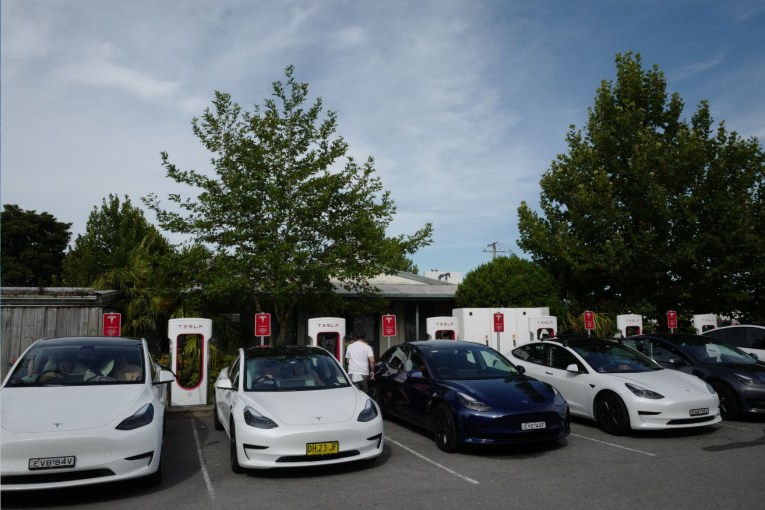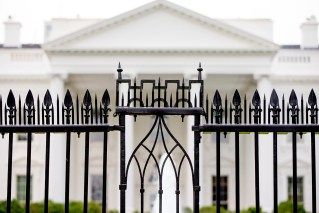Working in human waste for less than $10 an hour, seven days: This is where your veggies come from

A human trafficking-style network is feeding international workers to Australian farms, where they’re being exploited, mistreated and threatened – all for less than $10 an hour, explosive allegations reveal.
Mr D, a man in his 50s from Inner Mongolia, is blowing the lid on his experience on one of NSW’s biggest horticulture farms.
Mr D, who asked not to be named for fear of repercussions, came to Australia in July 2018 and has worked cash-in-hand jobs on farms while applying for a bridging visa.
His most recent experience was so bad it has forced him to come forward.
“This is horrible. It should not happen in a civilised country like Australia,” he told The New Daily through a translator.
The farm near Coffs Harbour employs about 50 workers, who are forced to start at 6am every day and pick until 6pm.
In summer, they work until 9pm.
There are no days off, not even breaks.
“There’s no rest on Sunday or Saturday, whatsoever,” he said.
Mr D took the picking job at the farm after seeing an advertisement in a Chinese language group on Facebook.
It promised good working conditions and hourly pay, but the reality was very different.
He did two stints on the farm – the first last year and then, desperate for money and lured back with promises that conditions had improved, again this year, for 100 days.
On the farm, there are only five toilets for 50 people, and if workers don’t get up early enough, they have to go in the greenhouses, next to the crops.
“It looks so dirty because they don’t have a toilet. So workers pee on the vegetables and you know, they have poo everywhere,” Mr D said.
“It’s horrible.”
The showers are the same. There are only 10, so to get one you have to line up early. The doors don’t work. There’s no privacy.
$50,000 for a job
The farm owner, who has connections in China, employs only Chinese workers, many from poor areas who have been brought over on the promise of making big dollars in Australia.
“The master of the farm, he gets agents to go to mainland China to Hubei province and Fujian province, poor places in China,” Mr D said.
“Those workers have to pay the traffic agents or the farmer a large sum of money to come to Australia to be exploited like this.
“I know at least three people who paid 250,000 yuan to come to work in this farm. This is equivalent to $50,000 Australian.”
Many on the farm don’t know their rights, are scared of the outside world and are abused by the farm owner, who threatens them with deportation, he said.
Workers share steel containers that are eight square metres. They’re blistering hot in summer and freezing in winter.
The workers are careful in their conversations with each other – if they dob in someone who is considering leaving or complaining, they are rewarded in their pay.
“They have no idea what the outside is like, so they wouldn’t leave because they are very afraid of the outside world,” he said.
Because he spoke up, Mr D got $10 an hour, but he said some of the workers received as little as $8.
Workers on hourly rates are often asked to lie or sign forms with incorrect hours, and some on piece rates don’t even know how much they should be paid.
A growing plague
Farm work has become a contentious issue in recent months, with farmers and government crying out for boots on the ground, suggesting a labour shortage of backpackers means this year’s harvest will go to waste.
But Australians are struggling to get jobs in the industry, with job seekers reporting farmers turn them down because they’re not “as exploitable” as foreigners.
Australian Workers Union national secretary Daniel Walton said Mr D’s story, while shocking, was not surprising.
“The industry has tried to paint it as a picture of a few bad apples. It’s not the case,” Mr Walton said.
He said dodgy farmers, along with labour-hire companies, ran similar operations across the country.

There are calls for the PM to launch a Royal Commission into the industry. Photo: AAP
“A lot of them get their passports taken off them. They’re intimidated. They’ve got limited time out to purchase food and veggies. They are kept and treated like slaves, and pawned like slaves,” he told TND.
“They’re sold on a promise of obviously much higher wages, better conditions, support to transition into other visa types. The reality is none of that happens.”
The horticulture industry has been allowed to run wild.
The government program designed to ensure workers are not exploited, Fair Farms, has only had 30 sign up – and the process is largely self-regulated.
Despite this, the government has pushed ahead with its campaign to get unemployed workers – including gap-year students – out onto Australia’s hardest workspace.
The AWU wants change. In a letter to Prime Minister Scott Morrison, Mr Walton has called for a royal commission into the industry.
“Australia’s horticultural sector has become characterised by a culture of exploitation, abuse and wage theft such that illegality is now a business model,” it reads.
“The majority of horticulture workers in Australia are captive to exploitation at the hands of criminal enterprises – and it has become a national disgrace.”








